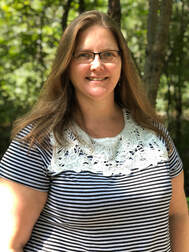Early Childhood Education (ECE)LADSE, in strong partnership with local elementary school districts, is proud to provide preschool classes specifically designed to meet the needs of children between the ages of three and five having special needs. Students participate in morning or afternoon classes within either a blended classroom model or an early childhood self-contained model dependent upon the student’s unique learning needs. Classes meet Monday through Friday. All of the ECE classrooms are housed in schools throughout LADSE's thirteen elementary member districts and every effort is made to place children in an ECE program in their home school district.
Preschool Screening Preschool screening is offered for three- to five-year-old children though each of the elementary school districts within the LADSE cooperative. This screening is used to identify children who may either be at-risk or in need of special services. Each child is assessed in the following areas:
2020-21 Preschool Screening Dates Please contact your local school district for more information regarding preschool screening dates and procedures.
Early Childhood Evaluation
Upon referral from the local school district, the LADSE team will consider a student’s unique strengths and areas of challenge in the determination of domains requiring further evaluation. Most commonly, the evaluation team will engage in a holistic method of evaluating a child’s developmental level through play. Such a practice is termed Transdisciplinary Play-Based Assessment. Transdisciplinary Play-Based Assessment Transdisciplinary Play-Based Assessment is a holistic method of evaluating a child’s developmental level through play. A team of professionals is assembled based on concerns expressed regarding a child’s development, such as a school psychologist, a speech-language pathologist, an occupational therapist, a physical therapist, and a school social worker. The team engages the child in play in a natural setting, observing various areas of development, such as sensorimotor, emotional and social, communication and language, and cognition. This evaluation method is effective for many reasons: it takes less time than separate evaluations of each area, it looks at the child as a whole, it includes the parents, and (most importantly), it engages children in one of their favorite activities—play. Classroom Curriculum & Assessment The Creative Curriculum for Preschool is utilized by teachers throughout the LADSE cooperative. It provides the foundation for learning in early childhood classrooms. Creative Curriculum builds learning through play. The classroom environment is structured to allow students to make choices, explore engaging materials and develop a variety of skills. The Creative Curriculum not only supports teachers in planning and implementing instruction but also guides them in setting up their classroom for maximal learning. It is based on 38 objectives for development which span across instructional areas from social emotional and math to technology and the arts. Teaching Strategies Teaching Strategies GOLD is an authentic, ongoing assessment tool utilized for children birth through kindergarten. Teachers observe students in their everyday activities to gather assessment data. This is an efficient and effective way to get to know what children know. The Teaching Strategies GOLD is based on 38 research based-objectives that are indicative of later school success. This allows teachers to focus on the most important foundational skills for children to develop for success. Please see the below link for a Teaching Strategies GOLD objective and skill reference guide. Teaching Strategies Gold Skill Reference Guide PATHS The PATHS (Providing Alternative Thinking Strategies) Curriculum was designed to help children learn to resolve conflicts peacefully, handle emotions positively, empathize and make responsible decisions. Weekly lessons teach new skills such as identifying feelings, giving compliments, and handling emotions. The classroom staff continues the instruction by encouraging students to use these skills when situations arise in the classroom. The goal is to promote the development of self-control and reflective thinking that can help prevent problem behaviors in the future. Developmental & Family Support Resources
|

